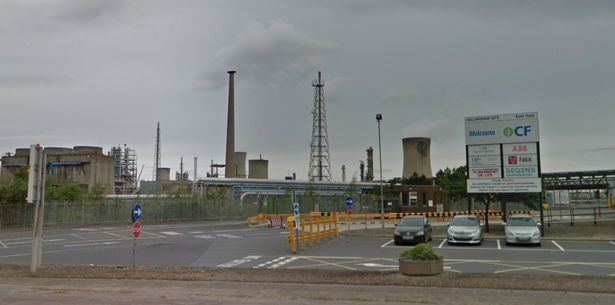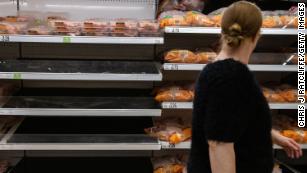UK bails out an American company to prevent food supply crisis

The UK government has decided to support a big US fertilizer plant at a cost to taxpayers of several million pounds in order to restart carbon dioxide manufacturing, which is critical to the food supply of the UK.
In a statement released late Tuesday, the administration revealed the extraordinary intervention. The strategy should allow CF Industries (CF), based in Illinois, to reopen one of its two UK factories and resume CO2 deliveries to the food and beverage industries. The ammonia factory will be safely restarted in “a few days,” according to a statement from CF Industries.
Because of the unprofitability of its UK fertilizer plants due to rising natural gas prices, CF Industries decided to shut them down last week. Because its plants also produce roughly 60% of Britain’s food-grade carbon dioxide, the statement stoked fears of a food shortage.
Gas uses to produce carbonated beverages and stun slaughter animals. And also used in packaging to extend fresh, chilled and baked products their shelf-life. When present CO2 gas stocks run out, the British Meat Processors Association warned on Friday that food shortages might occur within 14 days.
For the next three weeks, the UK government will provide “limited financial support” for CF Fertilisers’ operational costs, after which food producers would have to pay more for CO2 to reflect rising worldwide natural gas prices.
According to data from the Intercontinental Exchange, UK natural gas futures have climbed nearly fourfold since April. Due to depleting inventories, rivalry with Asia for liquified natural gas, and insufficient supplies from Russia, gas prices are soaring across Europe.
‘Fragility’ in the food supply
The transaction with CF Industries will cost UK taxpays “several million pounds,” according to Environment Minister George Eustice. Eustice told on Wednesday that without government aid the food supply chain in Britain would be under threat.
He believes that rising CO2 pricing will not lead to higher food prices, which are already rising due to higher global commodity price inflation and pay pressures due to workforce shortages.
The National Pig Association (NPA) claimed last week that manpower constraints linked to Brexit and the epidemic were causing its members to face their worst crisis in two decades.
Pig farms were running out of space to house their herds and were two weeks away from having to cull pigs due to a shortage of truck drivers and slaughterhouse employees, the association’s chief executive Zoe Davies told ITV News on Monday.
“Many EU workers have returned home as a result of a combination of new Brexit limitations and Covid,” the NPA stated in a statement last week. According to the National Pork Association, efforts to recruit domestic labor have been insufficient to fill “thousands of openings throughout their facilities.”
The impending CO2 crisis “highlighted clearly the fragility in the [food] supply chain,” according to Minette Batters, head of the National Farmers’ Union.
“Users of carbon dioxide were given little to no notice that supply would be cut off . A sign of market failure in a sector that supports our important national infrastructure,” she continued.
Tony Will, CEO of CF Industries, said the company will engage with the UK government to establish a “longer-term solution” to CO2 supply constraints.
Related Article:
Editor’s Choice :
- Easy Applebees French Onion Soup Recipe
- Easy Goya Split Pea Soup Recipe Tutorial
- Delicious Homemade Recipe for Frisch’s Vegetable Soup
- Easy Canned Salmon and Rice Recipes



